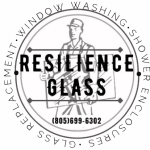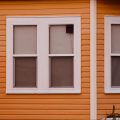Maintaining glass doors is essential for both practicality and aesthetic appeal. These doors often face wear and tear from daily use, accidents, or environmental factors. Deciding between repairing a damaged door or replacing it entirely can feel overwhelming. The right choice depends on the nature of the damage, your budget, and your long-term goals. Understanding the benefits and considerations of each option ensures a solution tailored to your needs.
The Benefits of Glass Door Repair and Replacement
Glass doors are vital features in homes and businesses, combining utility and style. Whether to repair or replace them impacts cost, aesthetics, and function; each option has distinct benefits depending on the situation.
Why Glass Door Repair Matters
Glass door repair is a cost-effective solution that minimizes downtime and preserves the door’s original design. Professional repairs can address cracks, chips, and misaligned hardware, extending the door’s lifespan. For minor damages that do not compromise the structure, repairs restore functionality while avoiding the expense of a replacement.
When Replacement Becomes the Better Choice
Replacing a glass door is often the best option when extensive damage or upgrades are desired. Modern designs enhance energy efficiency, improve safety, and refresh a space’s look. Newer materials and advanced features make replacement a practical investment for long-term durability and better performance.
Factors Influencing Glass Door Repair or Replacement
Choosing between repair and replacement depends on factors like the extent of damage, cost considerations, and the potential benefits of upgrading. Evaluating these elements helps you make an informed choice.
Assessing the Extent of Damage
The severity of damage determines whether repair or replacement is appropriate. Small cracks, chips, or hardware issues can often be fixed without replacing the door. However, extensive damage compromising the door’s integrity or safety usually requires a total replacement to ensure functionality and stability.
Cost Implications of Each Option
Cost is a significant factor when deciding between glass door repair and replacement. While repairs typically cost less upfront, recurring fixes for persistent issues can add up. Though initially more expensive, replacement can provide long-term savings through improved efficiency, reduced maintenance, and enhanced durability.
Common Glass Door Repair Issues
Understanding the types of damage typical to glass doors helps determine the best solution. Some issues can be repaired quickly, while others require replacement to ensure safety and functionality.
Cracks and Chips
Cracks and chips often result from accidents, weather, or aging and are among the most common glass door problems. Minor damages can be repaired effectively to restore the door’s appearance and strength. Severe or spreading cracks weaken the glass and often necessitate replacement to avoid further risks.
Hardware and Alignment Issues
Hardware problems like misaligned tracks, worn hinges, or loose handles can disrupt a door’s operation. Professional repairs typically resolve these issues quickly, restoring smooth functionality. When hardware damage is severe, or parts are outdated, replacing the door ensures long-term reliability and compatibility.
Environmental and Safety Factors for Glass Doors
Glass doors impact energy efficiency, safety, and overall sustainability. Addressing these factors can guide your decision and ensure a solution that meets modern standards.
Energy Efficiency and Sustainability
Modern glass doors offer improved insulation, reducing energy costs and enhancing comfort. Repairing gaps or worn seals can temporarily improve energy efficiency. However, replacing new, energy-efficient models delivers better performance and aligns with eco-friendly practices by incorporating sustainable materials and designs.
Ensuring Safety and Security
Damaged glass doors pose risks to safety and security, especially in homes with children or pets. Repairs can resolve minor issues, reducing the chance of accidents or break-ins. For severe damage, replacement with impact-resistant or tempered glass provides a safer and more secure environment.
How to Choose Between Glass Door Repair or Replacement
Choosing between glass door repair and replacement is about balancing practicality, aesthetics, and long-term value. Depending on your needs, each option offers unique advantages.
Balancing Functionality and Aesthetics
Glass door repair is ideal for preserving its original design while restoring functionality. Replacement offers an opportunity to upgrade to modern designs that improve energy efficiency, durability, and visual appeal. The choice should align with your goals for performance and style.
Professional Guidance and Expertise
Consulting a professional ensures the best outcome for your glass door needs. Experts assess the damage, recommend solutions, and provide quality services for repair or replacement. Their guidance helps you make an informed decision and achieve lasting results tailored to your space.
Popular Glass Door Types and Their Specific Issues
The type of glass door you own often determines the kinds of problems you may encounter. Each style has unique design elements that can impact whether repair or replacement is the better solution.
Sliding Glass Doors
Sliding glass doors are popular for their space-saving design and sleek look. However, they are prone to issues with tracks and rollers, which can become misaligned, dirty, or worn over time. These problems often cause difficulty opening and closing the door, but they can usually be repaired with cleaning, lubrication, or part replacement. Replacements may be necessary for glass damage or severely bent frames to restore function and aesthetics.
French Glass Doors
French doors offer an elegant and traditional appearance, but their double-pane design can present challenges. Fogging between panes is a common issue caused by seal failure, reducing visibility and insulation. Repairing the seals or replacing the glass can resolve this problem. Misalignment or warping in the frames may require replacement to ensure proper operation and maintain the door’s appearance.
Frameless Glass Doors
Frameless glass doors are often used in modern interiors for their minimalist and sophisticated style. These doors are more delicate and susceptible to chips or cracks, especially along their edges. Minor damages can be repaired, but larger cracks or compromised structural integrity typically necessitate replacement. Additionally, the lack of a frame means hardware like hinges must be carefully maintained to prevent costly replacements.
Bi-Fold Glass Doors
Bi-fold glass doors provide a dynamic solution for larger openings but often face mechanical issues with their folding mechanisms. Worn or damaged hinges and tracks can lead to uneven movement or difficulty folding the panels. Repairing the hardware is usually sufficient for such issues, though severe wear may require replacing entire sections or the complete door assembly.
Comparing Glass Door Repair and Replacement Costs
Glass door repair versus replacement costs vary widely depending on the damage, materials, and labor involved. Understanding these costs helps you make a more informed decision.
Typical Costs for Glass Door Repair
Repairing a glass door is usually less expensive than replacing it. Minor repairs, such as fixing a crack, can cost between $100 and $400, depending on the size and severity of the damage. Adjusting or replacing hardware like rollers, tracks, or hinges typically costs $75 to $250 per component. Sealing foggy double-pane glass can cost $200 to $500, depending on the complexity of the repair.
Average Costs for Glass Door Replacement
Replacing a glass door is a more considerable investment but often comes with long-term benefits. An essential sliding glass door replacement costs around $500 to $1,200, while high-end options like French doors can range from $1,500 to $4,000. Frameless glass doors and custom designs tend to cost the most, with prices often exceeding $3,000. The total expense depends on materials, labor, and added features such as energy-efficient coatings or impact-resistant glass.
Key Factors Affecting Costs
Several factors influence the cost of glass door repair or replacement. The type of damage and the parts needed significantly affect the overall expense. Replacement costs are impacted by the door’s size, style, and material quality. Additionally, labor costs vary by location and complexity, so obtaining quotes from multiple professionals is advisable. When deciding between repair and replacement, consider long-term savings from improved energy efficiency or reduced maintenance with a new door.
Impact of Climate on Glass Door Decisions
Climate plays a significant role in determining whether to repair or replace a glass door. Environmental factors can affect a door’s durability and functionality. Understanding how climate influences glass door performance can help you make the right decision.
Effects of Extreme Temperatures
Glass doors are more prone to thermal stress in regions with extreme temperature variations. Sudden temperature changes can cause cracks, especially in older or single-pane glass. While minor cracks may be repairable, replacing the door with double-pane or insulated glass can prevent similar issues. Energy-efficient models with low-emissivity (Low-E) coatings are ideal for minimizing heat transfer and reducing energy costs in extreme climates.
Humidity and Moisture Concerns
High humidity levels can lead to condensation between double-pane glass, indicating seal failure. This issue reduces the door’s insulation and clarity, making replacement the more effective solution for long-term results. Additionally, wooden frames in humid areas are susceptible to warping or rotting, often requiring replacement with more durable materials like aluminum or vinyl.
Storm-Prone Areas
Homes in coastal or storm-prone regions face unique challenges, such as high winds and flying debris. Standard glass is vulnerable to shattering during storms, posing safety risks. In these areas, damaged glass doors should be replaced with impact-resistant or hurricane-rated models. These doors can withstand severe weather conditions, offering both safety and durability.
Cold and Snowy Climates
Cold climates can cause issues like frost buildup on glass doors, especially if they are poorly insulated. Frost obstructs visibility and can damage seals and frames over time. Repairing seals and upgrading to insulated glass doors is often necessary to maintain energy efficiency and prevent heat loss.
Hot and Arid Regions
In hot and arid climates, prolonged exposure to intense sunlight can fade or damage the materials surrounding a glass door. UV-resistant coatings and durable frame materials, like powder-coated aluminum, are recommended for replacement projects. Repairing damaged glass may only provide temporary relief in such harsh conditions, making replacement a better long-term investment.
Invest in the Future of Your Glass Door Design
The decision to repair or replace your glass door is more than a practical fix—it’s an opportunity to redefine your space’s style, functionality, and efficiency. A well-maintained or upgraded glass door can frame your view, invite light into your life, and improve your interaction with your home or business. Whether you restore what you have or invest in something entirely new, the impact is immediate and lasting. Don’t settle for doors that don’t serve you fully. Take the first step today to ensure your glass doors are as strong, safe, and beautiful as the spaces they protect.
Visit our Resilience Glass blog for insights and advice on professional services for your home.






